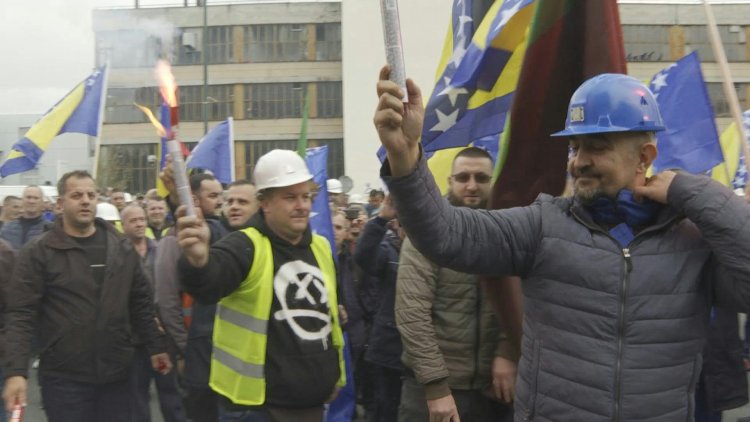Bosnian Miners Demand Compensation

Hundreds of coal miners protested in Bosnia's capital Sarajevo to demand compensation for months of unpaid labor, and met with government officials.
Bosnia remains heavily reliant on its 11 major coal mines for its energy needs, even as the country faces pressure to seek cleaner sources of power while it courts EU membership.
The sector has long been plagued by poor management, failure to pay pensions, and a spotty record on environmental stewardship.
To add to the problems, more than 600 employees from Bosnia's Zenica coal mine allege they have gone without pay since December and have called for authorities to act.
Speaking Vedran Lakic -- the mining minister for Bosnia's Muslim-Croat federation -- said officials were hoping to broker a solution by next week to pay the miners.
Union leaders warned of further action if their demands were not met.
The protest comes as the Zenica mine is undergoing financial restructuring, stirring fears that the facility will be closed in the near future following the laying off of around 200 employees.
Roughly two-thirds of the electricity produced in Bosnia is generated by a handful of mostly aging, state-managed coal-fuelled power plants built during the communist era.
Around 17,000 people work in Bosnia's 11 coal mines and five thermal power stations, along with thousands of other positions in related industries.
With an eye on EU membership, Bosnia has committed to transitioning its economy to renewable energy sources by 2050.
Bosnian miners have also struggled to move on and retire due to their employers' years-long failure to contribute to their pensions.
Earlier this month, EU leaders agreed to open talks with Bosnia on joining the bloc, though negotiations will only begin in earnest once the Balkan country has passed more key reforms.















